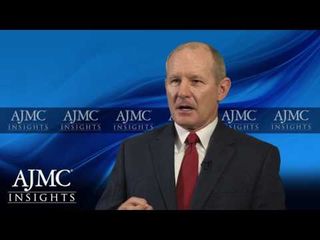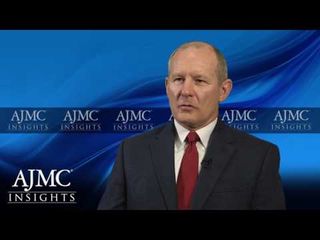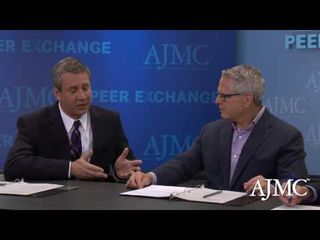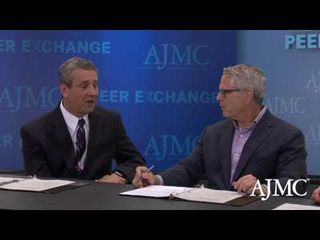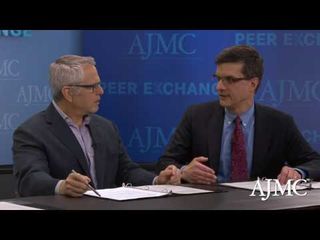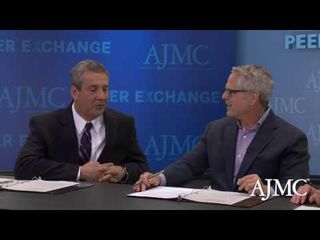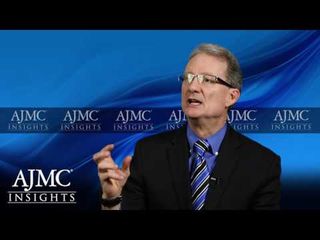
Insurance
Latest News
Latest Videos

More News

We've rounded up the top 5 articles of July, including changes being touted for the 340B program and a global report urging countries to think seriously about planning for high quality care.

The Community Oncology Alliance (COA) announced their support of CMS’ 2019 Outpatient Prospective Payment System (OPPS) Proposed Rule.

Medicare has lowered its star ratings for staffing levels in 1 out of 11 nursing homes; the Pharmaceutical Research and Manufacturers of America has donated to a lobbying group running a "dark money" campaign in favor of repealing and replacing the Affordable Care Act; a libertarian policy center funded by the conservative Koch brothers found that Senator Bernie Sanders's Medicare for All plan would cost $32.6 trillion over 10 years.

The cost of food insecurity in excess healthcare costs has been listed at $77 billion a year. Implementing meal delivery programs to improve health outcomes and lower costs has gained traction nationwide. Here are 5 things to know.

Coverage of our peer-reviewed research and news reporting in the healthcare and mainstream press.

Close to 200 organizations wrote to CMS and HHS this week to express concerns with the Trump administration’s plans to cut millions of dollars from the Affordable Care Act’s marketing and outreach budget, saying that they are “frustrated by CMS’ assertions that the need for these services has decreased as the number of uninsured or underinsured Americans continues to grow.”
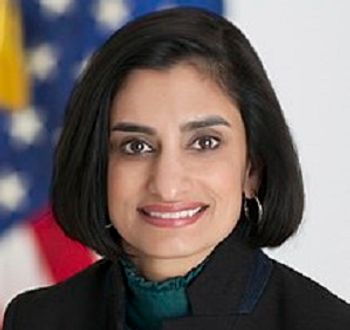
CMS announced a raft of proposed changes, including expanding its site-neutral payments between what Medicare pays for at physicians’ offices and off-campus hospital clinics, where rates are higher because of added hospital facility fees. The agency is also extending 340B drug discounts to off-site hospital clinics.

The Trump administration is proposing to pay doctors who take Medicare basically the same amount for office visits regardless of reason; the pending sale of Mission Health to HCA Healthcare reflects a national trend as hospitals consolidate at an accelerating pace and the cost of healthcare continues to rise; a closer look at 5 ideas in President Trump's plan to lower drug prices.

For a set of common physician services, employer-sponsored Medicare Advantage plans are found to pay prices that are similar to traditional Medicare rates.

We examine utilization, quality, and expenditures among Medicare beneficiaries receiving care at federally qualified health centers and compare outcomes among those attributed to 1 of 3 recognition programs versus none.

Medicare Chemo Costs Are Lower in Hospital Clinics Once Cancer Type is Considered, AJMC® Study Finds
Critics of healthcare consolidation have cited higher costs of chemotherapy administration as an example of how mergers drive up costs. A new study in The American Journal of Managed Care®finds that while drug administration costs in hospitals are higher, chemotherapy drug spending among Medicare patients is lower, driven by less frequent use of therapy.

Spending on chemotherapy drugs was lower among Medicare beneficiaries who received chemotherapy in hospital outpatient departments than among comparable beneficiaries receiving chemotherapy in physician offices.

Unplanned hospital readmissions, which affect more than 18% of Medicare beneficiaries each year, are generally understood to be tied to gaps in care coordination between hospitals and community healthcare providers, and new research suggests that readmission more than a week after discharge may be tied to patients’ inability to access appropriate outpatient care after discharge.

The American Hospital Association will refile its 340B lawsuit against HHS after an appeals court ruled the lawsuit was premature; therapies approved by the FDA with breakthrough designation often lack strong medical evidence; a study has suggested that frequent use of digital media may increase the odds of adolescents developing symptoms of attention-deficit/hyperactivity disorder (ADHD).

Following CMS’ announcement of proposed rules for the 2019 Medicare Physician Fee Schedule, Community Oncology Alliance (COA) released a statement calling the proposals “puzzling.” The statement details concern with 2 proposals.

Constraining access to HIV regimens can have significant implications for patients. This study examined the economic and health impacts of restrictive HIV formulary designs.

CMS Administator Seema Verma said the changes are designed to reduce administrative burdens for physicians so they can spend more time with patients. A group representing community oncologists said a reimbursement change for new drugs could have unintended consequences.

CMS proposed new rulemaking Wednesday to update 2019 Medicare payment policies for fee-for-service patients with end-stage renal disease (ESRD).

Likely due to a focus on preventive services, Medicare Advantage (MA) beneficiaries had lower rates of complications, hospitalizations, and emergency care services compared with fee-for-service (FFS) Medicare beneficiaries.

A day before legislators will hold hearings on 15 bills relating to the 340B drug discount program for hospitals, 340B Health, which represents those hospitals and providers, released a report that said more than half of the disproportionate share hospitals would lose eligibility under one Congressional proposal.

The Community Oncology Alliance (COA) has filed a lawsuit in the US District Court for the District of Columbia, stating that the 2% sequester cut to Medicare Part B drug reimbursement is unconstitutional and illegal, and that it can harm patient care and have a huge impact on the communityc ancer care system.

We've rounded up the top 5 most read articles of June, including trial results from the 2018 American Society of Clinical Oncology Annual Meeting and a FDA breakthrough therapy designation for a gene therapy.

What We're Reading: California Halts Soda Taxes; Massive Drug Takedown; Amazon Shakes Pharmacy Firms
The California state legislature approved a last-minute deal to halt soda taxes for 12 years; the Department of Justice charged 601 people for taking part in a variety of frauds and schemes that resulted in more than $2 billion in healthcare losses; Amazon buying PillPack, an online pharmacy, is exactly what the pharmacy business has been fearing.

Total and per capita annual growth rates in Medicare are trending higher than their historically low levels of the past few years, the Henry J. Kaiser Family Foundation reported recently in a review of Medicare data, creating an uncertain environment for future sustainability.

Oklahoma’s Medicaid program is the first to win approval from CMS to negotiate supplemental rebate agreements involving value-based purchasing (VBP) arrangements with drug manufacturers, with the aim of producing extra rebates for the state if clinical outcomes are not reached. Separately, CMS denied an application from Massachusetts requesting the ability to exclude certain Medicaid-covered outpatient drugs through a closed formulary.





